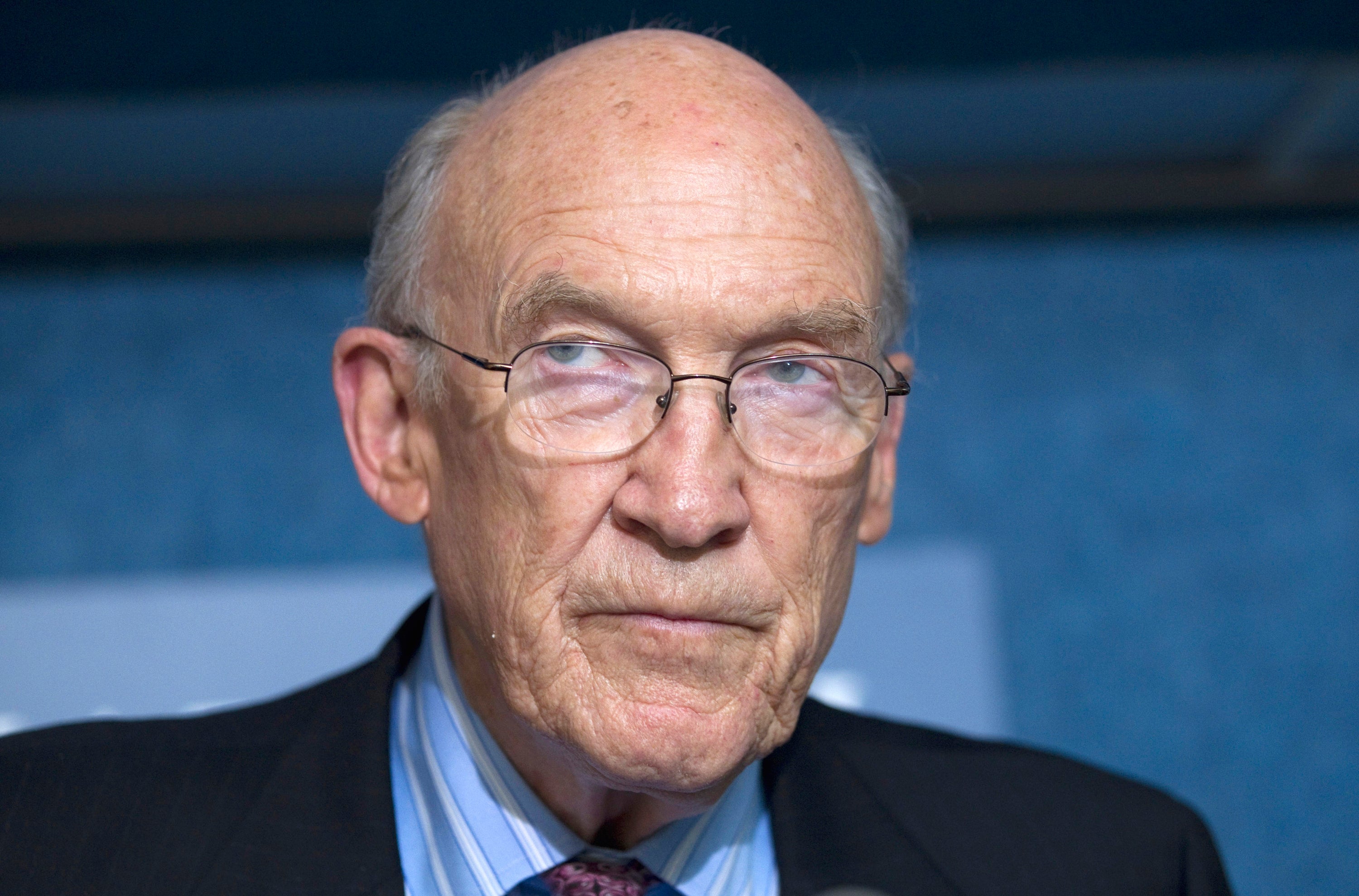Family: Former Wyoming US Sen. Simpson stable after stroke
The family of former Wyoming U.S. Sen. Alan Simpson says he is in stable condition after a stroke

Your support helps us to tell the story
From reproductive rights to climate change to Big Tech, The Independent is on the ground when the story is developing. Whether it's investigating the financials of Elon Musk's pro-Trump PAC or producing our latest documentary, 'The A Word', which shines a light on the American women fighting for reproductive rights, we know how important it is to parse out the facts from the messaging.
At such a critical moment in US history, we need reporters on the ground. Your donation allows us to keep sending journalists to speak to both sides of the story.
The Independent is trusted by Americans across the entire political spectrum. And unlike many other quality news outlets, we choose not to lock Americans out of our reporting and analysis with paywalls. We believe quality journalism should be available to everyone, paid for by those who can afford it.
Your support makes all the difference.Former Wyoming U.S. Sen. Alan Simpson is recovering at a Denver-area hospital after suffering a minor stroke earlier this week, his family said.
Simpson, 89, was in good spirits with good vital signs at Swedish Medical Center in the Denver suburb of Englewood, his son, Colin Simpson, told The Cody (Wyoming) Enterprise on Wednesday.
Colin Simpson, a Cody attorney, said his father suffered the stroke on Monday after recently having a blood clot removed from a carotid artery on his left side. He was taken to Cody Regional Hospital, then transferred to Swedish Medical Center on Tuesday.
“Cody Regional did a great job taking care of him,” Colin Simpson said.
Telephone messages for Colin Simpson and to Swedish Medical Center on Thursday were not immediately returned.
Alan Simpson served as a Republican senator from 1979 to 1997. He subsequently taught politics and co-chaired a commission under President Barack Obama to draw up recommendations on how to cut the national debt, which he has long argued is placing an unsustainable burden on younger generations of U.S. citizens.